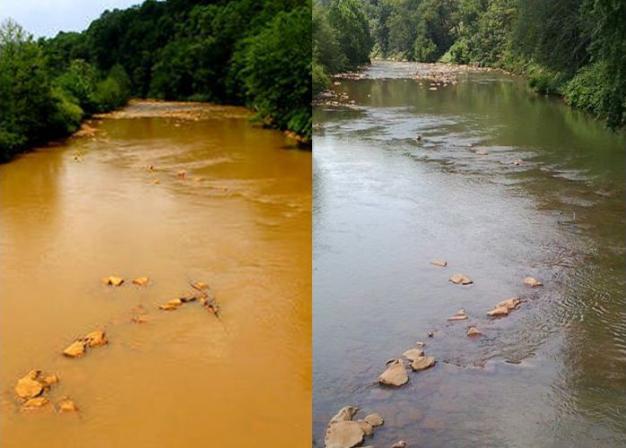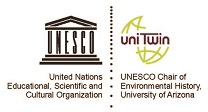Yoshira Van Horne (PhD student)
Over the past year with a Research Assistantship funded by the UNESCO Chair, I have had the pleasure of working on the  Gold King Mine Spill Diné Exposure Project. A project composed of a multidisciplinary team that focuses on helping the Diné (Navajo) communities impacted by the Gold Mine Spill that occurred in August 2015. Two years later this indigenous community is still searching for answers on the impact the Spill had on their land, health, and way of being. One of the primary ways I contributed to this indigenous community was by helping to train 20 Navajo Department of Health Community Health Representatives (CHRs) in environmental health topics, field sampling, and the ethics of conducting research. During a household sampling campaign in August 2016, we visited 55 Navajo homes as part of the Gold King Mine Spill Diné Exposure Project. During this time, I worked closely with the CHRs. I could see first-hand how strong their commitment to their community is, a quality that we were able to connect on. The sampling campaign consisted of 12 hour days, where our team had to prep the materials the CHR’s needed for the day, assist with household sampling, and then document the samples obtained that day. What kept me going was knowing that no matter how hard I was working, the CHRs were working just as hard for a project that they had just been briefed in. One-year after the household sampling campaign our team is re-connecting with the CHRs and planning for the results report back campaign to be held at the end of August 2017.
Gold King Mine Spill Diné Exposure Project. A project composed of a multidisciplinary team that focuses on helping the Diné (Navajo) communities impacted by the Gold Mine Spill that occurred in August 2015. Two years later this indigenous community is still searching for answers on the impact the Spill had on their land, health, and way of being. One of the primary ways I contributed to this indigenous community was by helping to train 20 Navajo Department of Health Community Health Representatives (CHRs) in environmental health topics, field sampling, and the ethics of conducting research. During a household sampling campaign in August 2016, we visited 55 Navajo homes as part of the Gold King Mine Spill Diné Exposure Project. During this time, I worked closely with the CHRs. I could see first-hand how strong their commitment to their community is, a quality that we were able to connect on. The sampling campaign consisted of 12 hour days, where our team had to prep the materials the CHR’s needed for the day, assist with household sampling, and then document the samples obtained that day. What kept me going was knowing that no matter how hard I was working, the CHRs were working just as hard for a project that they had just been briefed in. One-year after the household sampling campaign our team is re-connecting with the CHRs and planning for the results report back campaign to be held at the end of August 2017.
